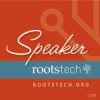As a fan of Google Books, I am pretty excited about last week’s settlement for the class action lawsuit filed by authors and publishers over digitizing rights by Google Books. The preliminary agreement, if approved, will bring more access to full-text books to the public AND compensate authors and publishers. This could be a happy solution for all parties.
Three years ago, or just about the time Google Books really started rolling with a massive list of digitized books, the Authors Guild and
Association of American Publishers sued Google over the rights to digitize their works without compensation. Writers everywhere have been watching the results of this action.
One major result of this settlement is a new expanded Google Books Search which will include out-of-print and in-print books. Authors and publishers will have an option to make books available for print or purchase to readers that are still under copyright but out-of-print. This will be a great boon to researchers, since niche books often have short press runs and become difficult to find.
Titles for Google Books will come from two sources: The Partner Program (authors and publishers) and The Library Project (world-wide libraries). This will undoubtedly boost the number of books available for search and access, especially older out-of-print books that are being digitized by libraries.
A second major change is the way users can access in-copyright books, whether in-print or out-of-print. Google Books presently shows snippets of these books; under the new agreement, users could purchase access to the full text through an individual Google Book account, or have access through library or institutional subscriptions.
Google Books notes that out-of-copyright, out-of-print books will continue to be available for download and printing. The implication is that this service will also continue to be at no charge.
For researchers, this means that Google Book Search can return results for active, current books, hard to find out-of-print books, and older copyright-expired books all with one search.
Google Books also makes note that expanded subscriptions for libraries educational institutions and public will also be offered creating “opportunities for researchers to study the millions of volumes in the Book Search index. Academics will be able to apply through an institution to run computational queries through the index without actually reading individual books.”
I’m not sure what that last bit means, other than maybe researchers will be able to tally volumes in a given category or subject, but the fact that it is included as a distinct item indicates further interest in the topic.
As part of the settlement, Google Books will also be creating the Authors Rights Registry to assist author-searches and insure that authors are compensated for their work. This may be a bit of a slap on the hand to Google, but can only be good for authors and publishers.






Amen Apple!
Well done, Denise. Google Books is my favorite place on the web.
Many of the old photographic books would be so important to my research. I also hope my library will add them as a service, similar to Safari, as I have off-site access.
Things are getting better. Now if I just had an iTablet for Christmas!
-fM
I hear you, Apple. It sounds like libraries with a Google Books subscription will have rights to the out-of-print books; I hope the rates are low enough for local libraries to participates, not just big educational libraries.
Thanks for the honor, Leslie Ann! I’ll be following up.
Being able to purchase the right to read a book is very interesting as often the books I want to read are not available anywhere within easy driving distance and only seem to be for sale if you can find them used. The question for me will be affordability. It would also be great if the local library made them available.
I have chosen your blog to receive the Kreativ Blogger Award. Go to http://ancestorslivehere.blogspot.com/ for details.